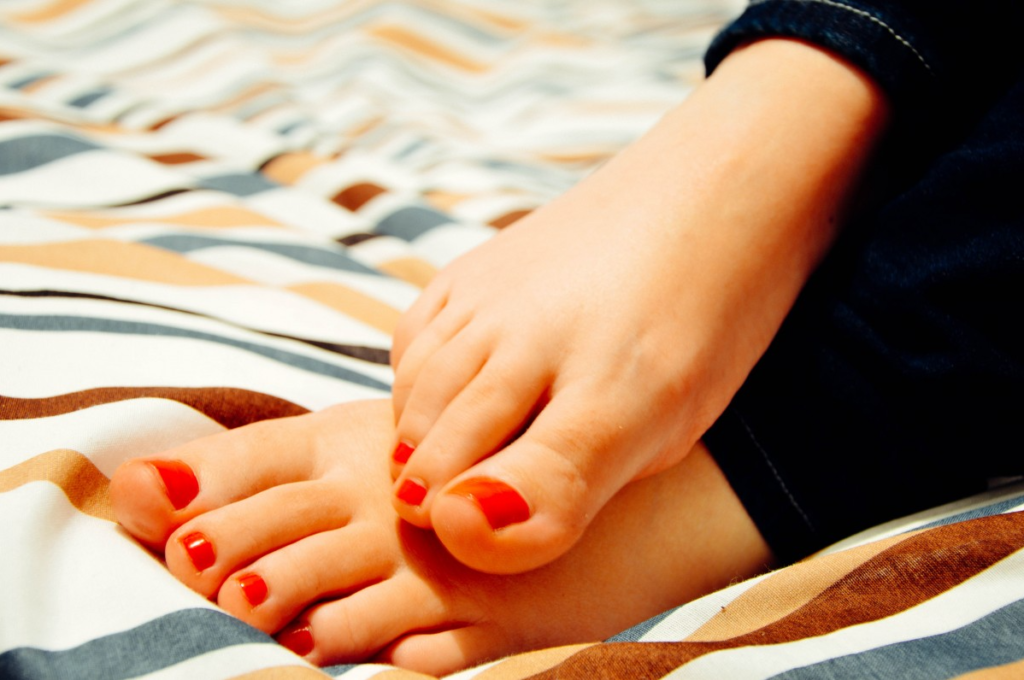Are Ingrown Toenails Genetic?
Podiatric medicine is a field of study specializing in the study, diagnosis, and treatment of the lower extremity including the ankle, foot, and toes. Of all patients visiting a podiatrist, the American Academy of Family Physicians (AAFP) estimates that 20 percent of these patients are suffering from an ingrown toenail. Ingrown toenails are most commonly caused by trauma or improper footwear. Many people wonder: Are ingrown toenails genetic?
What is Onychocryptosis?
Onychocryptosis is a condition that results in chronic ingrown toenails. Though this condition might not be directly inherited, it is often caused by the shape of your toe or toenail, which can be inherited from your parents. Onychocryptosis causes the sides or corners of your toenail, often on the big toe, to grow into the surrounding skin.
Common symptoms associated with this condition include redness, swelling, and pain in the affected area, as well as tenderness and pain upon pressure resulting in limping.
Causes of Chronic Ingrown Toenail
Ingrown toenails may be caused by many things including:
-
Improper Footwear
- Wearing socks and shoes that do not allow adequate spacing for your toes creates an increased risk of developing an ingrown toenail. Because of sudden growth spurts, adolescents are at a greater risk of developing onychocryptosis.
-
Improper Nail Care
- Cutting the toenail too short allows the surrounding skin to grow on top of the nail, causing significant discomfort and swelling. In addition, ensuring you are getting a pedicure at an accredited business will reduce the risk of infection from improper cleaning.
-
Medical Condition
- Hyperhidrosis is a condition that results in abnormal sweating that is not the direct result of exercise or heat exposure. This condition creates an unstable environment and softens the skin around your toenail, making it more susceptible to penetration of the nail.
-
Genetics
- Are ingrown toenails hereditary? Many people “inherit” the potential for developing ingrown toenails from one or both of their parents, making them more predisposed to getting them.
How to Prevent Chronic Ingrown Toenails
While some people are more susceptible to experiencing chronic ingrown toenails than others, some things can be done to prevent a recurrence of this painful condition.
Avoid Improper Nail Trimming
Cutting toenails too short or unevenly leads to an increased risk of developing ingrown toenails. Podiatrists recommend ensuring toenails are cut evenly at the corners and straight across.
Wear Proper Footwear
Wear socks and shoes that allow adequate toe space. Be sure you can wiggle your toes at all angles to prevent compression of your toes.
Avoid Trauma
Do you participate in activities that may lead to injury of the foot, like soccer? Wearing proper protective footwear can reduce the risk of experiencing an injury to the toe.
Red Mountain Footcare for Ingrown Toenail Treatment
Have you found yourself with a painful ingrown toenail and are unsure of how to treat it? A podiatrist specializes in foot care, including onychocryptosis. Minor ingrown toenails may be treated at home with simple care, like soaking the affected foot or removing the ingrown toenail. However, if an infection has set in or you experience chronic or recurring ingrown toenails or have unexplained redness, swelling, or pain upon standing, it might be time to seek help.

